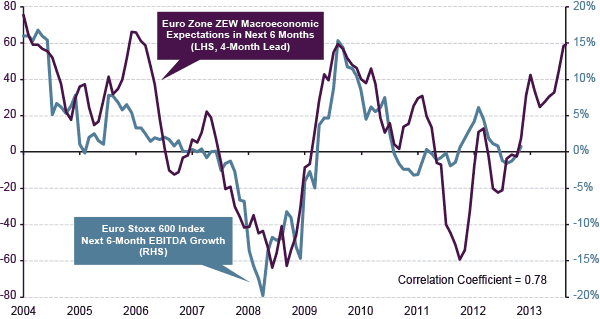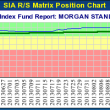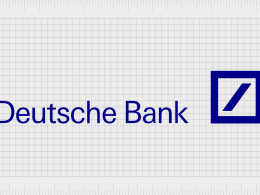by Scott Minerd, CIO, Guggenheim Partners LLC
October 17 2013
With the partial government shutdown and Washington gridlock behind us for now, interest rates should continue declining and conditions are pointing to a period of renewed strength across asset classes.
Global CIO Commentary by Scott Minerd
Although the just-ended government shutdown will be a drag on fourth quarter economic growth, the underlying U.S. economy still has a great deal of torque and the outlook for investments is improving. Historically, in the month following government shutdowns interest rates decline by an average of 39 basis points. It is becoming clear that the three-week government shutdown has damaged the economy, at least in the short-term. For these reasons and the likelihood that the U.S. Federal Reserve will not taper its asset purchases until next year, we see the yield on the 10-year U.S. Treasury note declining to a level below 2.5 percent. Despite the near-term economic softness, we expect a reacceleration of growth at some point in the first half of 2014.
Equity markets anticipate events about six months in advance, which means now could be a favorable time to consider increasing allocations to stocks. The first game of the World Series – hopefully the Los Angeles Dodgers against the Boston Red Sox this year – is normally a solid entry point for equities.
Against this backdrop, the international investment picture is also improving, and we could be entering a period of substantial improvement for risk assets across the globe. In addition to turning more bullish on U.S. stocks, I remain bullish on emerging markets, and I am still heavily bullish on European equities, which remain more than a third lower than their 2007 highs. I am also bullish on fixed-income – corporate rather than sovereign debt – and believe credit spreads have further room to tighten. The current environment looks favorable for risk assets into the second quarter of next year.
Chart of the Week
Improving Euro Zone Macroeconomic Expectations Point to Earnings Recovery
The ZEW euro zone macroeconomic expectation index rose to a 4-year high of 59.1 in October, indicating a majority of financial analysts and institutional investors are now optimistic about the euro zone economy over the next 6 months. This survey has historically been a leading indicator for euro zone corporate earnings and given the strong economic outlook in the region, we expect a sustained recovery in corporate earnings, creating a tailwind for European equities.
EURO ZONE ZEW MACROECONOMIC EXPECTATIONS VS. EURO STOXX 600 INDEX EBITDA* GROWTH

Source: Bloomberg, Haver Analytics, Guggenheim Investments. Data as of 10/17/2013.
*Note: EBITDA refers to Earnings Before Interest, Taxes, Depreciation, and Amortization.
Economic Data Releases
Fiscal Uncertainty Weighing on Business and Consumer Confidence
- University of Michigan Consumer Confidence fell to 75.2 in October from 77.5 in September, decreasing for a third consecutive month.
- Initial jobless claims fell 15,000 from last week’s surge, decreasing to 358,000 the week ended October 11. Application backlogs in California continued to be work through and government contractors also increased the number of claims.
- The NAHB Housing Market Index fell to 55 in October after September’s decrease, the first consecutive monthly declines in over three years.
- The Empire State Manufacturing Survey dropped for a third straight month to 1.5 in October, substantially below estimates of 7.0.
- The Philadelphia Fed Business Outlook Survey fell less than expected in October, dropping from 22.3 to 19.8.
- Mortgage applications ticked up 0.3% the week ended October 11, but purchases fell 4.8% to the lowest level this year.
Good Signs out of Europe, Export Drop and Price Pressure in China
- Euro zone industrial production grew slightly more-than-expected in August, up 1.0%. The increase was the largest in two years.
- The euro zone trade surplus widened to €12.3 billion in August after falling the past four months.
- The ZEW survey of expectations of economic growth in the euro zone rose to 59.1 in October, the highest in four years. Expectations in Germany rose to 52.8, also a four-year high.
- Industrial production in France rose 0.2% in August, breaking a streak of three months of contraction.
- Italian industrial production unexpectedly fell for a second month, down 0.3%.
- Jobless claims in the U.K. fell by 41,700 in September, the most since 1997.
- U.K. retail sales excluding autos grew 0.7% in September, a better-than-forecast reading.
- Chinese exports unexpectedly fell in September, decreasing by 0.3% from a year ago. Decreased shipments to Europe and much of Asia led the decline.
- China’s CPI jumped to 3.1% year-over-year in September from 2.6% in August due to rising food prices.
- Japan’s M2 money stock growth remained at 3.8% in September, the fastest growth since 1999.
















